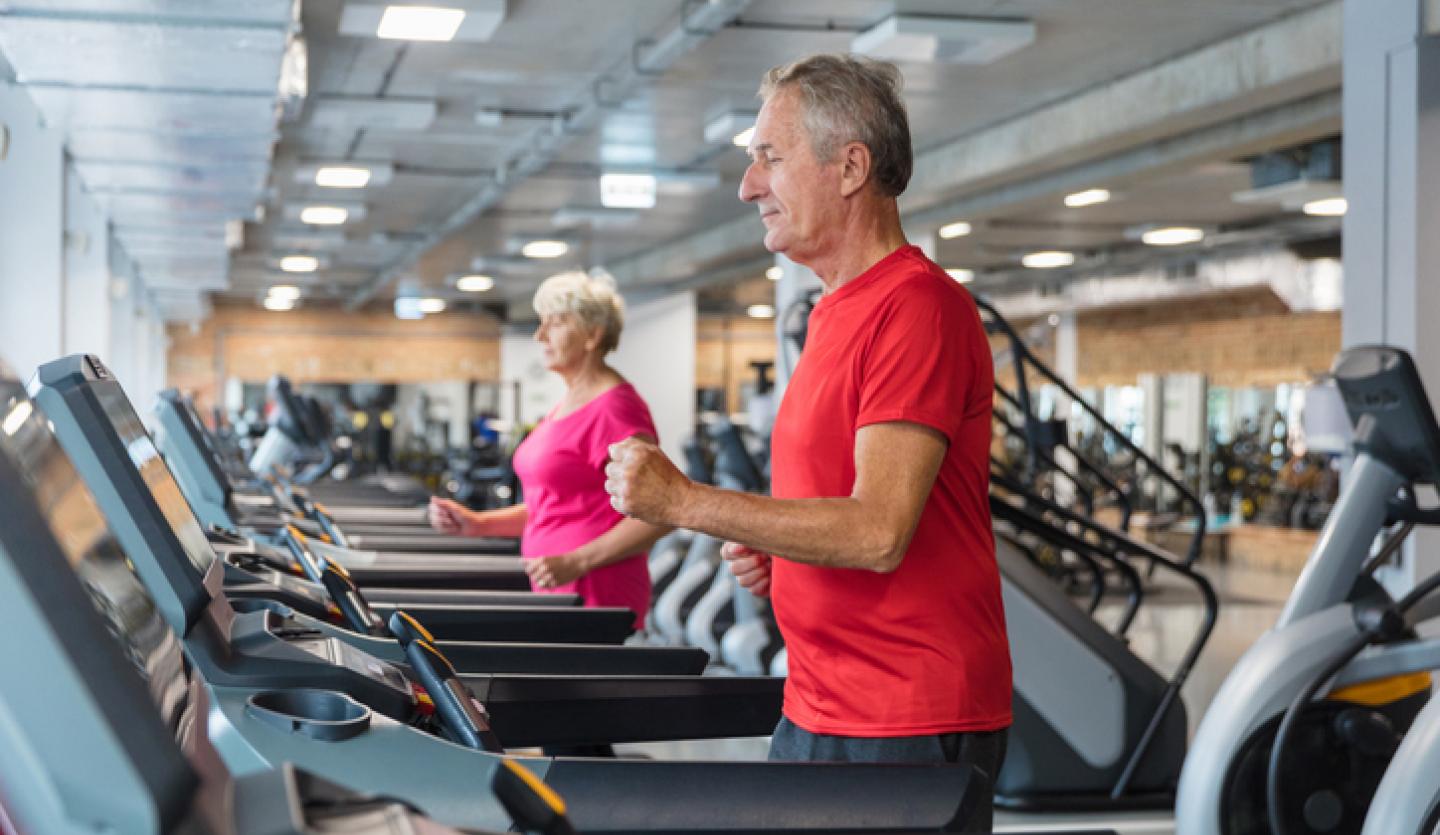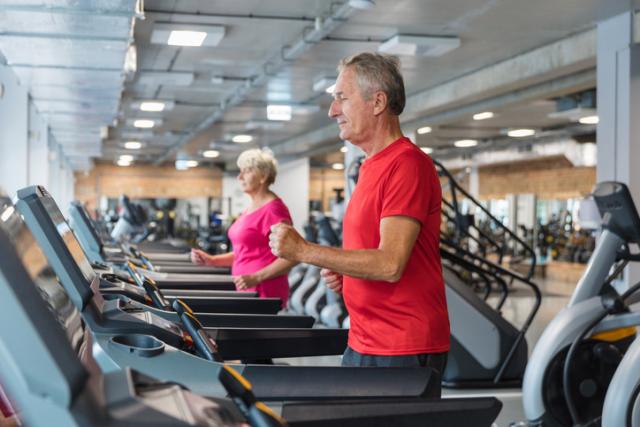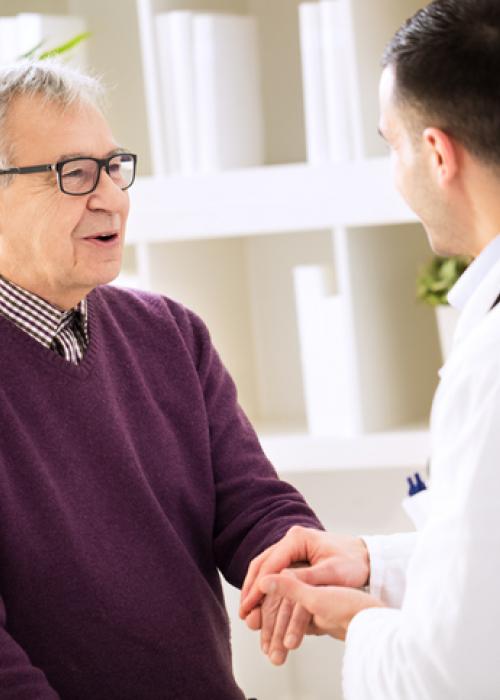Cardiac rehabilitation, also called cardiac rehab, helps patients with heart issues recover by teaching them an individualized plan for safely improving physical health and identifying and managing their risk factors.
Sue Palo, Director of Rehabilitation & Community Services at St. Francis Hospital & Heart Center®, answers frequently asked questions about cardiac rehab.
What are the features of a cardiac rehab program?
A dedicated team of experts works closely with each patient to create a medically supervised cardiac rehabilitation program emphasizing the importance of physical and psychological health while maintaining the quality of life.
Recovering from a heart attack or other cardiac event can be frightening. Patients often feel depressed and lost about returning to daily routines. The cardiac rehab program includes exercise classes and support groups so patients know they are not alone in working toward their goals.
Cardiac rehabilitation is a comprehensive therapy that combines:
- Prescribed exercise training
- Cardiac risk factor modification
- Education on heart health
- Diet and nutrition counseling
- Psychosocial support that helps patients after a cardiac event
Who benefits from cardiac rehab?
Cardiac rehabilitation is geared toward patients who have heart disease.
- Heart attack
- Heart failure
- Use of ventricular assist device
- Angina
- Heart or heart-lung transplant
- Heart valve repair or replacement
- Coronary artery bypass grafting surgery
- Coronary artery angioplasty with or without stent placement
How Heart-Healthy Are Your Habits?
Our quiz helps you make lifestyle choices that improve your heart health.
What are the different phases of cardiac rehab?
Cardiac rehabilitation is categorized into phases depending on a patient’s condition and a doctor’s recommendation for the safest course of therapy.
Phase 1: Inpatient
The initial phase of cardiac rehabilitation occurs when the patient is still in the hospital. For most people, a health care provider will recommend starting cardiac rehabilitation in an outpatient facility shortly after their discharge home.
Phase 2: Outpatient
The second phase of cardiac rehabilitation typically includes 36 one-hour exercise sessions offered two to three times per week. The patient is ready for the third phase after completing this program.
Phase 3: Maintenance
During the third phase of cardiac rehabilitation, patients are now able to exercise on their own. They can exercise at home, at a local gym, or at a rehabilitation center offering a maintenance program.
What type of cardiac rehab exercises are prescribed?
Exercises vary according to a patient’s incoming fitness level but may include:
- Aerobic exercises include walking, riding a stationary bike, using a rowing machine, and using an elliptical or step trainer.
- Activities to strengthen the muscles, such as resistance bands, free weights or weight training machines.
Who oversees the cardiac rehab program? Is it safe?
Cardiac rehabilitation group exercise sessions are supervised by clinical staff, such as registered nurses and exercise physiologists. An onsite physician is immediately available in the event of an emergency.
Patients are given individualized exercise prescriptions that are safe and appropriate for keeping them in their prescribed training zone. Patients begin with an exercise program and then gradually increase their intensity and duration according to their response, fitness level and medical history.
A patient’s heart rate and blood pressure are checked regularly to ensure they are safe while exercising.
Health care providers such as doctors, nurses, exercise physiologists and dieticians offer expertise and guidance in the lifestyle modifications necessary to reduce the patient’s risk of future cardiac events.
What is The DeMatteis Center for Cardiac Research and Education?
The DeMatteis Center for Cardiac Research and Education (Greenvale, NY) is part of St. Francis Hospital & Heart Center®—ranked one of the top hospitals in the country for cardiology. The DeMatteis Center offers the largest medically staffed cardiac fitness and rehabilitation program on Long Island and is one of the largest hospital-based programs in the country.
The center has achieved national certification from the American Association for Cardiovascular and Pulmonary Rehabilitation.
Patients who come to The DeMatteis Center receive the highest level of cardiac care to help them heal and are provided with helpful tools to continue practicing good heart health. In addition to cardiac rehabilitation, the center also offers lifestyle modification programs that can assist a patient in reducing health risks.
Programs include:
- Outpatient nutrition
- Managing high blood pressure
- Weight management
- Diabetes education
- Stress management
- Meditation
- Smoking cessation
- Stretch and tone classes
- Moving for balance
- Chair exercise
- Additional lectures on various health topics
Contact The DeMatteis Center at 516-629-2000 for more information.
Care across Long Island
Catholic Health also offers cardiac rehabilitation at Good Samaritan University Hospital (West Islip, NY) and St. Charles Hospital (Port Jefferson, NY).
Learn more about Catholic Health’s cardiac rehabilitation services.
Call 866-MY-LI-DOC (866-695-4362) to find a Catholic Health physician near you.







